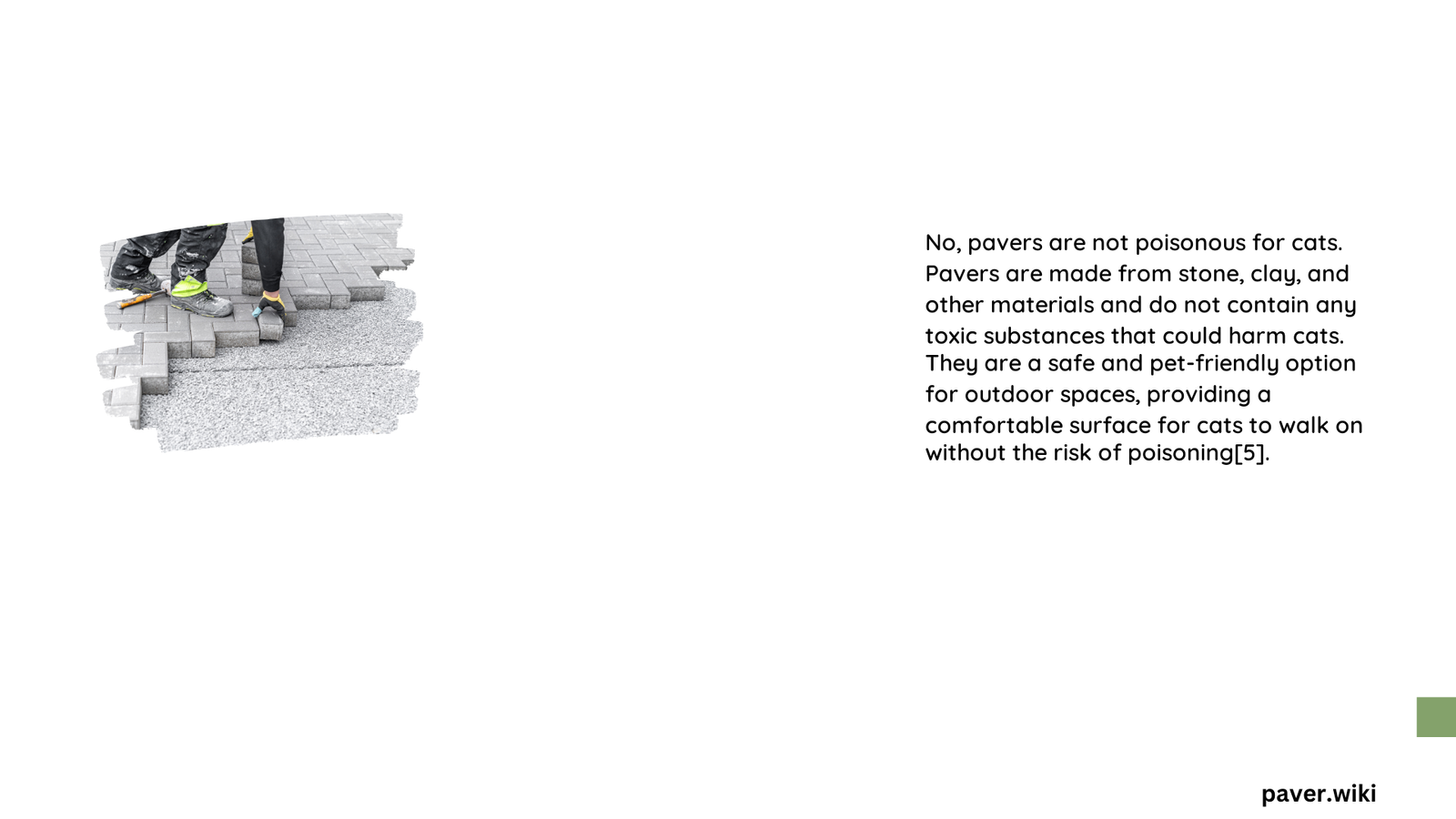Cats are curious creatures that love exploring outdoor spaces, but pet owners must be cautious about potential hazards like pavers. While not all pavers are inherently toxic, certain materials like concrete can generate harmful dust containing crystalline silica, which poses significant respiratory risks to cats and other animals. Understanding the composition and potential dangers of different paver types is crucial for creating a safe outdoor environment for your feline companions.
What Makes Pavers Potentially Harmful to Cats?
Are Concrete Pavers Dangerous for Cats?
Concrete pavers represent the most significant risk to cats due to their composition and dust generation:
| Paver Type | Potential Hazards | Risk Level |
|---|---|---|
| Concrete Pavers | Crystalline silica dust | High |
| Natural Stone Pavers | Minimal dust generation | Low |
| Porcelain Pavers | No significant dust | Very Low |
Key Risks of Concrete Paver Dust
- Respiratory Irritation: Crystalline silica can cause severe lung inflammation
- Potential Long-Term Health Issues: Repeated exposure may lead to chronic respiratory problems
- Dust Inhalation Dangers: Fine particles can penetrate deep into the respiratory system
What Are Safe Paver Alternatives for Cat Owners?
Pet owners should consider alternative paver materials that minimize health risks:
- Natural Stone Pavers
- Made from organic materials
- Low dust generation
-
Minimal chemical processing
-
Porcelain Pavers
- Non-porous surface
- No harmful chemical emissions
- Easy to clean and maintain
How Can Cat Owners Protect Their Pets?
Recommendations for creating a safe outdoor environment:
- Choose Low-Dust Paver Materials
- Seal Concrete Pavers to reduce dust generation
- Limit Cat’s Exposure during paver installation or maintenance
- Consult Veterinarian about potential respiratory risks
Professional Insights on Paver Safety

Veterinary experts emphasize the importance of understanding material composition and potential health risks. While no definitive studies exclusively focus on feline paver toxicity, the general principles of respiratory health apply to cats.
Practical Precautions
- Ventilation: Ensure good air circulation during paver work
- Dust Suppression: Use water or dust control methods
- Protective Barriers: Keep cats away during installation
Conclusion
While pavers aren’t universally poisonous, certain types can pose significant health risks to cats. By selecting appropriate materials and taking preventive measures, pet owners can create safe, beautiful outdoor spaces.
Recommendations for Cat Owners
- Prioritize porcelain or natural stone pavers
- Minimize dust during installation
- Monitor cats for respiratory changes
- Consult professionals for specific landscaping advice
